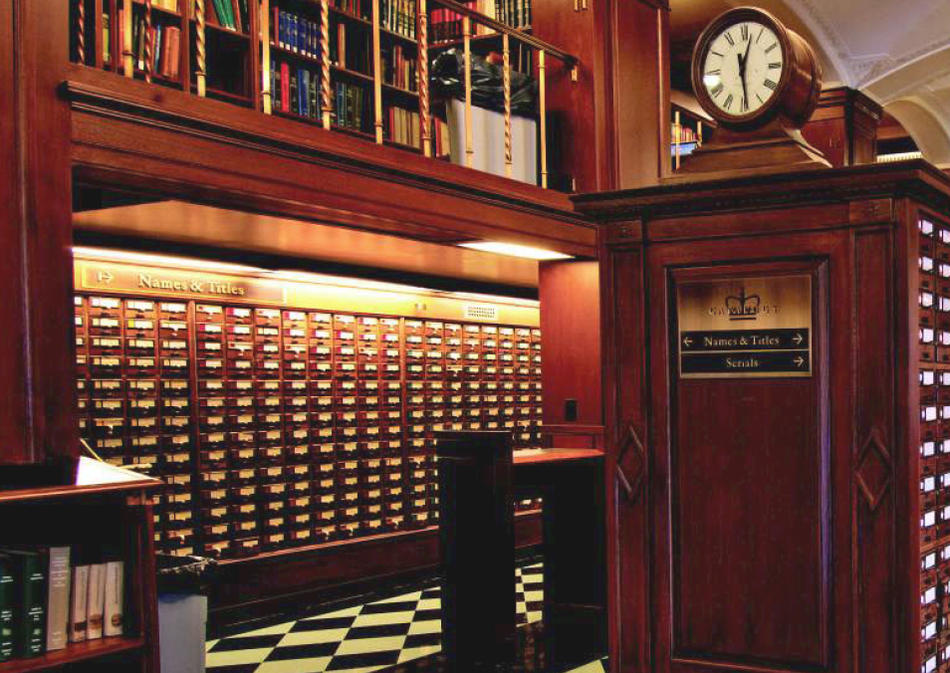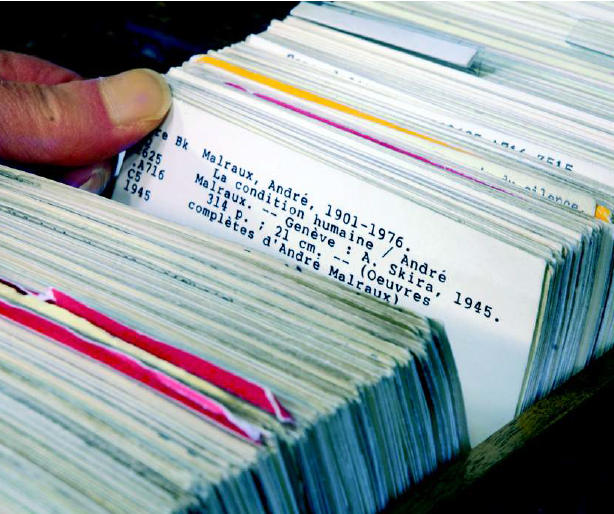In room 310 of Butler Library, the great wooden cabinets of the card catalog stand like massive, many-windowed dwellings, the windows actually little alphabetized drawers stuffed with index cards that bear the human stamp of words and numbers (typed, printed, or handwritten) of the world’s great system for classifying and locating library books.
Columbia’s card catalog hasn’t been updated since 1985, when the University introduced its computerized CLIO catalog. By the end of this summer, the three freestanding cabinets will be removed — a scene that’s been repeated over the past two decades at libraries throughout the world. At Columbia, however, it will have a special poignancy. From 1883 to 1888, the school’s chief librarian was Melvil Dewey, inventor of the system that revolutionized library science. In the First Annual Report of the Chief Librarian, dated May 31, 1884, Dewey pitched an innovation to stand alongside the Dewey Decimal System in improving the way we navigate the bibliographic universe:
The cards will contain the best advice the librarians and professors can give. They are never “out to lunch,” or “just gone home,” or “too busy” to answer questions ... The most skillful librarian in time dies or resigns, and his accumulated wisdom and good advice to readers go with him, leaving his successor to begin, not where he left off, but where he began before, a generation earlier. But with our new catalogue, each librarian stands on the shoulders of his predecessors. Every reader is told that he shares the responsibility of finding errors or notes that should be brought down to date, and thus the catalogue grows each day more and more valuable. Old librarians and workers in libraries who have examined our plan uniformly predict for it the foremost place on the score of practical utility to readers.
Dewey, who died in 1931, lived to see that prediction fulfilled, even if his other crusades for efficiency and simplification — the metric system and spelling reform (Melville to Melvil, e.g.) — were less successful. In room 310, meanwhile, the liberated space will be filled by Columbia’s Digital Humanities Center: new computers, new applications, new seating.
That sounds like an upgrade that Dewey would have approved.




